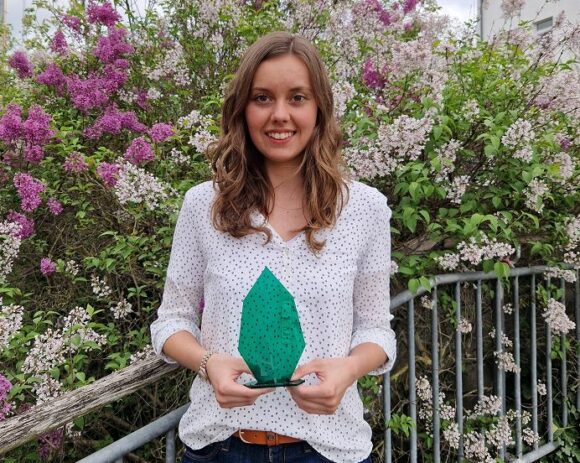The development of an intelligent management system for sewer networks is the aim of a research project involving Hof University of Applied Sciences. This is to be achieved by using innovative sewer network sensors and incorporating historical weather data and current weather forecasts. The project partners want to develop a data collection, evaluation and control system that allows reliable predictions to be made about the future load on the sewer networks. This can provide sewer network operators with valuable information for resilient sewer operation, for avoiding water pollution and for future construction measures, among other things.

Flooding as a result of heavy rainfall events is occurring more and more frequently in Germany and often causes major damage in conjunction with severe storms. This is often accompanied by considerable environmental pollution due to the uncontrolled discharge of untreated wastewater into watercourses. “To make matters worse, the sewer pipes are no longer able to absorb the masses of water that accumulate, even though there is still storage capacity in the sewer system itself and in the connected rainwater basins,” says Prof. Günter Müller-Czygan from the “Water Infrastructure and Digitalization” research group at the Institute for Sustainable Water Systems at Hof University of Applied Sciences (inwa).
Heavy rainfall and dry periods
The researchers’ observations also indicate that more extreme dry periods are to be expected in the future. “The location and timing of such events are difficult to predict, which means that sewer system operators are faced with the sometimes conflicting challenges of heavy rainfall and long periods of drought, for which they need to be prepared,” says the research group leader.

Dynamic sewer management system
The solution envisaged by the project partners in the “InSchuKa4.0 – Combined infrastructure and environmental protection through AI-based sewer network management” project therefore focuses on the implementation of dynamic, flexible sewer network management using the example of the sewer network in Jena. This is to be achieved through intelligent data collection, evaluation and monitoring in conjunction with modern closure devices, making optimum use of the existing sewer network volume during heavy rainfall. This solution also counteracts possible negative effects during dry periods, such as increased sedimentation, odor formation or corrosion, by generating targeted flushing waves on the sewer bed and thus cleaning it. Furthermore, the additional storage volume generated after a longer dry period ensures that the uncontrolled discharge of pollutants into bodies of water is prevented during short-term heavy rainfall events.

Meeting on the progress of the project
The latest results have now been presented and discussed at a meeting on the progress of the project at Hof University of Applied Sciences. Extensive simulations were used to analyze the different operating conditions for the intelligent management system and determine their effects. These results were compared with the planned sealing elements and the selection of the machines was confirmed so that the material procurement and technical installation of the test equipment can begin shortly.

Various surveys have been carried out by Hof University of Applied Sciences to date. The survey participants, who primarily came from the field, confirmed the necessity and correctness of the innovative project objectives and provided important information on detailed aspects of the modern management system. Based on the results of the survey on the acceptance of artificial intelligence in the German water industry, the partners are discussing its fundamental application possibilities in municipal wastewater management, also against the background of the so-called CBR procedure (Case Based Reasoning), a particularly transparent form of artificial intelligence.
The various contributions from the project partners made it clear that our project goal of intelligent data integration and analysis is essential for the future viability of sewer network management”
Prof. Günter Müller-Czygan
During the subsequent discussion, the possibilities of transferring the project results to other projects taking place in a similar environment were also analyzed.
Funding and partners
The “InSchuKa4.0” project is funded by the Federal Ministry of Education and Research (BMBF) and will run until 31.01.2025. The project partners are







